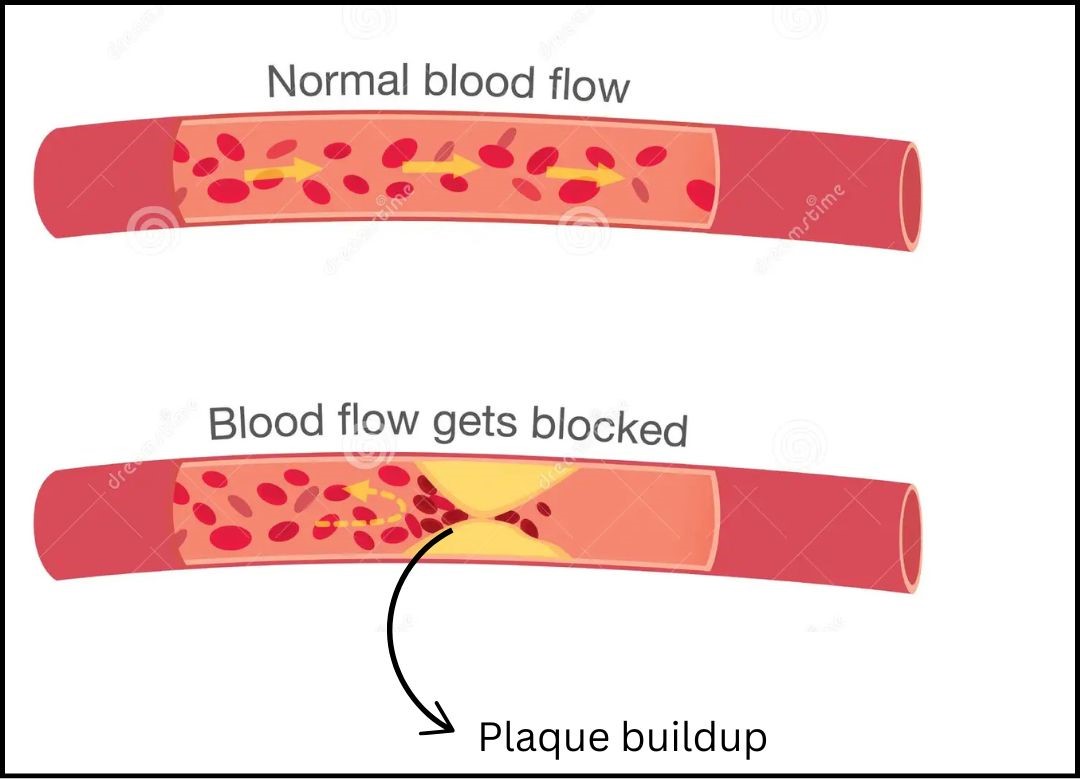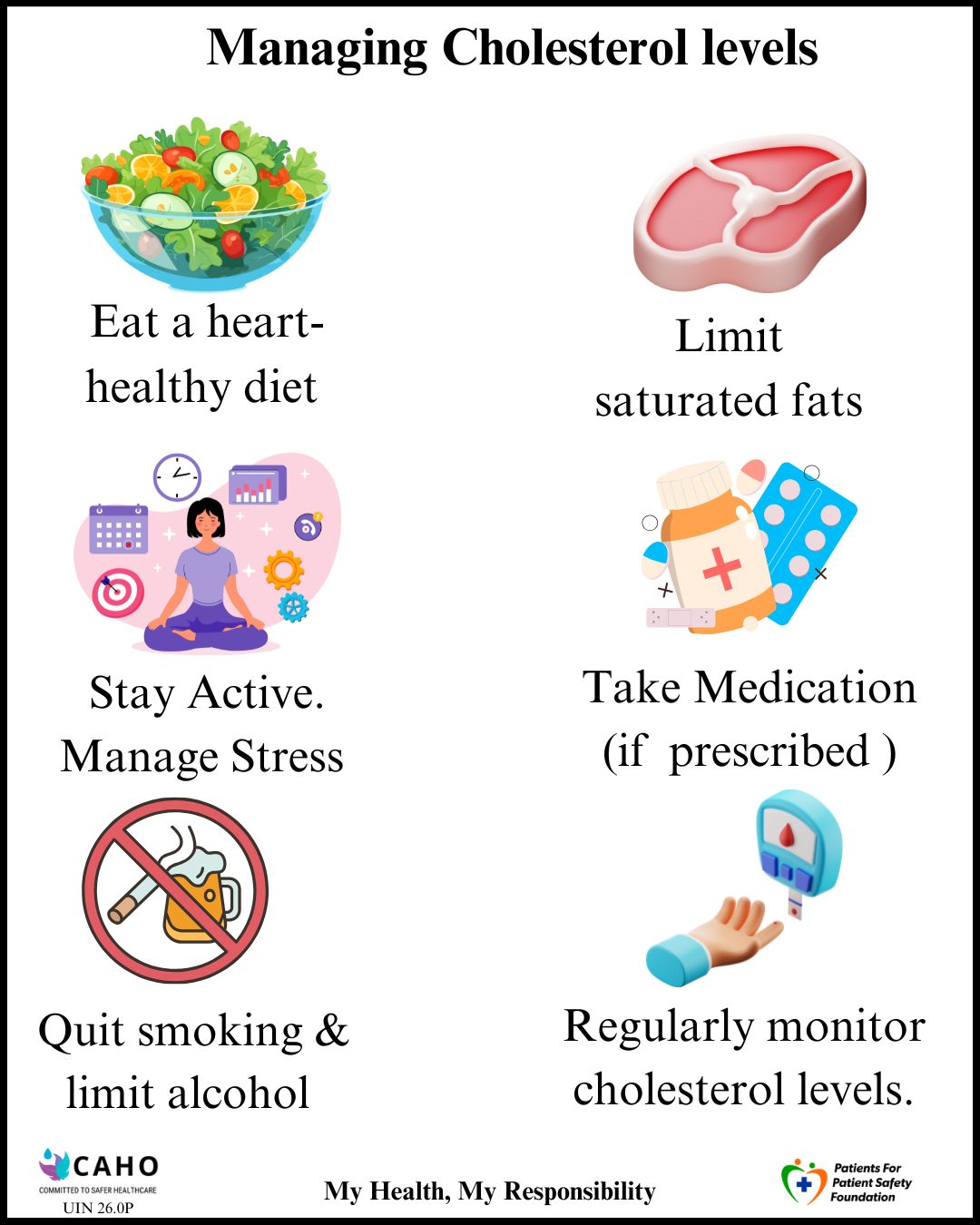Understanding Cholesterol
Introduction:
Cholesterol is a type of essential fat produced by the liver. Your body needs cholesterol to build and
repair cells, and to make hormones, vitamin D, and substances that help you digest foods. The body
produces enough cholesterol and we need only a small amount in our diet.
South Asians are more prone to high cholesterol and related coronary diseases. Addressing these
factors through lifestyle modifications and medical interventions is crucial for reducing risks.
Types of cholesterol:
- LDL (Low-Density Lipoprotein):
Often referred to as bad cholesterol, high levels of LDL can lead to plaque buildup and narrowing or
blocking the arteries, increasing the risk of heart disease.
- HDL (High-Density Lipoprotein):
Known as good cholesterol, HDL helps to return LDL cholesterol from your arteries to your liver,
where it can be removed from your body.

High cholesterol could cause the following:
- Coronary Artery Disease (CAD):
This condition occurs when plaque builds up in the coronary arteries, potentially leading to heart
attacks or heart failure.
- Stroke:
If blood flow to the brain is blocked by a clot formed from plaque, it can result in a stroke.
- Peripheral Artery Disease (PAD):
This affects blood flow to the limbs and can lead to pain and mobility issues.
What are the symptoms of high cholesterol?
Most people will not know they have high cholesterol because there are no obvious symptoms. It is
important to have your cholesterol levels checked and manage the levels before it causes serious
health issues.
Why do Cholesterol Levels Increase
Cholesterol levels can rise due to various factors:
- Consuming foods
high in saturated fats (found in red meat and full-fat dairy products) and trans fats (commonly
found in processed snacks and baked goods) can elevate cholesterol levels.
- Genetics:
Some individuals inherit conditions and tend to have high LDL levels from a young age.
- Lifestyle Factors:
Lack of physical activity, obesity, smoking, and excessive alcohol consumption also increase
cholesterol levels.
How to measure cholesterol level
Cholesterol can be measured by a simple blood test called Lipid profile. This test gives the
comparison of the cholesterol LDL, HDL, Triglycerides and Total cholesterol.
How often should I get my cholesterol checked?
Your provider will tell you how often you need your cholesterol checked. It depends on your:
- Age:
The older you get, the more often you need to have your numbers checked.
- Family history:
If you have a close biological family member with a history of heart disease, you face a higher risk
of heart problems, too. You may need cholesterol tests more often if your family member has high
cholesterol or a history of heart attack or stroke.
Cholesterol should be checked starting early in life even children and adolescents should have their
cholesterol checked. Since high cholesterol often presents no symptoms, periodic screenings become
essential your doctor will recommend routine cholesterol tests starting at age 20 for those at risk.
Managing Cholesterol levels:
Cholesterol can be effectively managed through healthy lifestyle choices and medical interventions
when necessary:

- Follow a low-salt diet rich in fruits, vegetables, and whole grains.
- Limit animal fats and consume healthy fats in moderation.
- Maintain a healthy weight through regular physical activity.
- Quit smoking and reduce alcohol consumption.
- Exercise for at least 30 minutes and manage stress effectively.
- Take medications like statins if lifestyle changes alone are insufficient, based on individual
health needs.
- Schedule regular health checkups to monitor cholesterol levels.
Cholesterol plays several important roles in the body When it comes to cholesterol, Remember:
Check, Change and Control.


